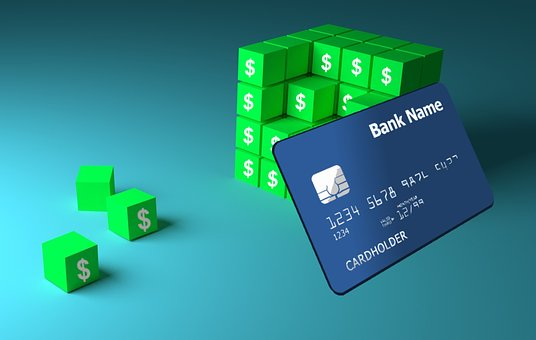 People borrow money for multiple reasons, including paying immediate expenses, doing home improvement projects, or purchasing properties. Beyond your submission of a loan application to a lender, a lot of work goes on behind the scenes.
People borrow money for multiple reasons, including paying immediate expenses, doing home improvement projects, or purchasing properties. Beyond your submission of a loan application to a lender, a lot of work goes on behind the scenes.
After receiving your loan application, your lender will quickly run a credit report to ascertain your credit score. Your heart may sink if the application returns with a declined stamp.
What is a credit score, and why does it matter? Continue reading to learn more about credit scores.
What Is A Credit Score?
A credit score is an important aspect of your loan application. Typically, your lender will use the credit score to evaluate your repayment ability. Unknown to many, credit reports from the reporting agencies don’t usually generate a credit score.
Instead, they get credit information from lending institutions, loan statements, or credit card companies. Likewise, there are free credit scoring platforms on the internet that offer updated grades.
The range of your credit score, which depicts your creditworthiness, is 300 to 850. Usually, if it’s high, it means that your credit file looks positive to lenders, who will likely advance you differently.
The following factors determine an individual’s credit score:
- Credit history
- Number of open accounts
- Total debt amount
- Repayment history
Fair Isaac Corporation (FICO) is the company behind the credit score model. While there are other models, such as the Vantage Scores, the majority of institutions use the FIFO score.
How Does A Credit Score Work?
A credit score plays a major role when you’re obtaining credit and can impact your financial goals.
If your credit score is below 640, you’re considered a subprime borrower or a high-risk individual. A low credit score may generate negative factors in your credit reports, including account rejections and delinquencies.
Similarly, you can be a subprime borrower if your credit report is thin and there is little activity on your credit report that can help lenders make decisions. Your lender will rely on the reports from the credit agencies and mostly use the FIFO score.
In the U.S., three credit reporting agencies, namely Experian, Equifax, and Transunion, break the scores into different tiers.
For instance, the first three tiers for Experian are Exceptional, Very Good, and Good, which are reserved for borrowers with scores starting at 670. If your score falls between 300 to 669, you will fall in the bottom tiers of Fair and Very Poor.
An application with a lower credit score will be most likely rejected by your bank. However, some companies take the risk by offering subprime lenders loan products, like an $800 loan with no credit check.
Some lenders may offer secured loan products that require collateral. Also, you may be asked to have a co-signer or guarantor with good credit records. You’ll get favorable rates if you have excellent credit scores, and your application process will be hassle-free.
When borrowing a mortgage loan facility with poor credit, your property or home becomes the security. Nevertheless, your interest rate may be higher than that of an average borrower.
How Are Credit Scores Calculated?
As earlier noted, three main credit reporting agencies in the U.S. report, update and store your credit history.
While there may be differences in the data collected by these companies, the main parameters that they use when calculating your credit score include;
- Payment history
- New credit
- Total debt owed
- Credit history period
- Types of credit or loans.
Typically, your payment history accounts for up to 35% of your credit scores. Additionally, it shows whether you meet your debt obligations as stated in your credit terms.
It’s advisable to keep your borrowing at 30% of your credit card limit or credit utilization. Your credit history duration should account for 15% for lenders to determine it as less risky. The type of credit accounts and New credit inquiries should be at least 10% each.
Here is a summary of factors that affect credit scores;
Factor | Weightage(%) |
Payment History | 35% |
Total debt | 30% |
New credit duration | 15% |
Credit card accounts | 10% |
New credit accounts/enquiries | 10% |
How Can You Improve Your Credit Score?
Every time creditors or people you owe money provide the credit reporting bureaus your information, your credit score changes. Depending on your credit information, it can go up or down. Here are some excellent suggestions for raising your credit score.
- Don’t be late in paying your bills. Most lenders usually furnish new information to the bureaus within 90 days. If you pay bills on time, you’ll see a difference in your overall score.
- Update your credit limit. If you’re in good standing, your credit card provider may grant an increase. It’s important to stay within the 30% threshold.
- Don’t close your credit account. It would be good to keep it open because a shorter credit history can harm your score.
- Consolidate debts to reduce the monthly repayments.
- Borrow only when in need.
How Many Times Can You Pull A Credit Report?
Understanding your credit score gives you insight into the type of loan products you can apply for and their interest rates. If your credit score is poor or bad, you can follow the tips mentioned above to improve it. Additionally, you enjoy favorable interest rates if your credit score is good.
Checking your credit score regularly won’t hurt your credit limit, it’s advisable you check often. However, hopping from one lender to another can increase credit report inquiries. Other lenders may view you as a risky customer due to multiple applications.
Credit Score Myths Debunked
You’ve probably heard of different credit card myths from people, particularly regarding credit cards. Here, we highlight the persistent myths.
- You shouldn’t close an old credit card, as doing so can lower your credit score. This myth is true because a new card doesn’t have a credit history which lowers your overall score.
- You should have a good credit score to enjoy excellent deals on car or mortgage loans. This myth is true because lenders will offer lower interest rates on borrowers with good scores.
- Having a card balance improves your score. On the contrary, it can hurt your credit score if the balance attracts interest.
- Pulling a credit report can harm your score. Not necessarily true unless it’s from lending institutions or what’s popularly known as a hard pull.
Conclusion
Evidently, your credit score is an important consideration when applying for a loan. You can save money through low interest rates with a good credit score. Also, it gives you credibility as someone who honors their debts. You can have a healthy credit score by following the tips mentioned herein.


















